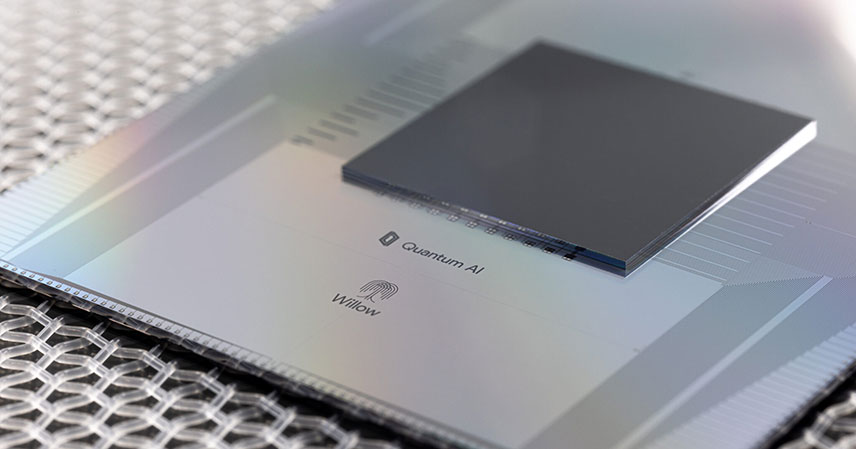The world of quantum computing has long been a realm of immense promise and complex challenges. For years, headlines touted the potential of this revolutionary technology. Yet, tangible, real-world applications often felt just out of reach. Recently, Google has once again pushed the boundaries, announcing a significant step forward that reshapes our understanding of quantum capabilities.
This latest development moves beyond mere theoretical achievements. It offers a glimpse into a future where quantum systems perform genuinely useful computations. This marks a crucial pivot in the ongoing quest to harness the power of quantum mechanics for practical problem-solving. It signals a shift from abstract demonstrations to concrete, verifiable advantage.
From Supremacy to Advantage: A Shifting Paradigm in Quantum Research 🔄
A few years ago, Google ignited a debate with its claim of “quantum supremacy.” This assertion suggested their hardware could perform operations impossible for classical computers. However, this claim faced scrutiny. Mathematicians quickly developed methods that allowed classical systems to catch up. This back-and-forth highlighted the fluid nature of early quantum benchmarks.
The field subsequently evolved its focus. Researchers began to prioritize more practical metrics for success. Two key concepts emerged: quantum utility and quantum advantage. These terms now guide much of the cutting-edge research. They represent a more mature and application-oriented approach to quantum development.
Quantum utility refers to a quantum computer performing computations that are useful in a practical sense. It’s about solving real-world problems. This could involve anything from designing new materials to optimizing complex logistical networks. The outcome must have tangible value beyond a mere demonstration of power.
Quantum advantage, on the other hand, focuses on speed. It means a quantum system completes calculations significantly faster than a typical classical computer. This isn’t just about doing something useful. It’s about doing it with unparalleled efficiency. Companies like IBM and startups such as Pasqual have actively contributed to defining what constitutes a verifiable quantum advantage. Their work emphasizes the need for rigorous, comparative benchmarks.
Google’s Latest Leap: Demonstrating Verifiable Quantum Advantage 🚀
Today, Google, in collaboration with numerous academic partners, has published a groundbreaking paper. This research describes a computational approach that demonstrates a clear quantum advantage. Crucially, this advantage is achieved compared to current classical algorithms. This is not just a theoretical improvement; it’s a measurable performance gain.
The details of the computational approach are complex. However, its essence lies in leveraging quantum mechanics to solve specific problems more efficiently. This new method holds the potential to be genuinely useful. It could unlock solutions to problems previously intractable for even the most powerful supercomputers. This represents a significant milestone in quantum research.
While the exact “useful” application isn’t fully detailed in the initial announcement, such breakthroughs typically impact fields like material science. Drug discovery is another prime candidate. Complex optimization problems across various industries could also benefit immensely. Imagine accelerating the development of new batteries or designing more effective pharmaceuticals. These are the kinds of applications that quantum advantage promises.
This achievement underscores the power of collaborative research. Google’s internal expertise combined with diverse academic perspectives accelerated this progress. It highlights a collective push towards practical quantum applications. The scientific community is actively working together to move beyond theoretical promises.
Implications and the Road Ahead: Bridging the Gap to Real-World Applications 💡
This demonstration of quantum advantage is more than just a scientific curiosity. It has profound implications for the future of computing. It validates the long-held belief that quantum systems can outperform classical ones for specific tasks. This breakthrough will likely spur further investment and research in the field.
Industries reliant on complex computational models stand to benefit significantly. Finance, logistics, healthcare, and engineering are just a few examples. Quantum computers could optimize portfolios, streamline supply chains, or simulate intricate biological processes. The potential for innovation is vast and far-reaching.
However, significant challenges still remain. Scalability is a major hurdle. Building larger, more stable quantum computers is an ongoing engineering feat. Error correction is another critical area. Quantum bits (qubits) are inherently fragile. Protecting them from environmental interference is essential for reliable computation. Accessibility also needs improvement for wider adoption.
Despite these challenges, Google’s latest work provides strong momentum. It shifts the narrative from “if” quantum computers will be useful to “when” and “how.” The focus will now intensify on developing practical algorithms and robust hardware. This is a clear signal that quantum computing is maturing rapidly. The journey from laboratory curiosity to indispensable tool is well underway.
Key Insights from Google’s Quantum Milestone ✨
- The quantum computing field has successfully shifted its primary focus from theoretical quantum supremacy to the more practical metrics of quantum utility and quantum advantage.
- Google, with its academic partners, has demonstrated a significant quantum advantage. This means their quantum system can outperform classical algorithms for specific computations.
- This breakthrough is not merely theoretical; it signals progress towards genuinely useful applications. It could impact fields like material science, drug discovery, and complex optimization.
- The collaborative nature of this research highlights the importance of partnerships between industry and academia in accelerating quantum development.
- While a major step forward, challenges such as scalability, error correction, and making quantum computers more robust still need extensive research and development.
- This achievement validates the long-term potential of quantum computing. It paves the way for future innovations that could transform various industries.
Source: Google has a useful quantum algorithm that outperforms a supercomputer



